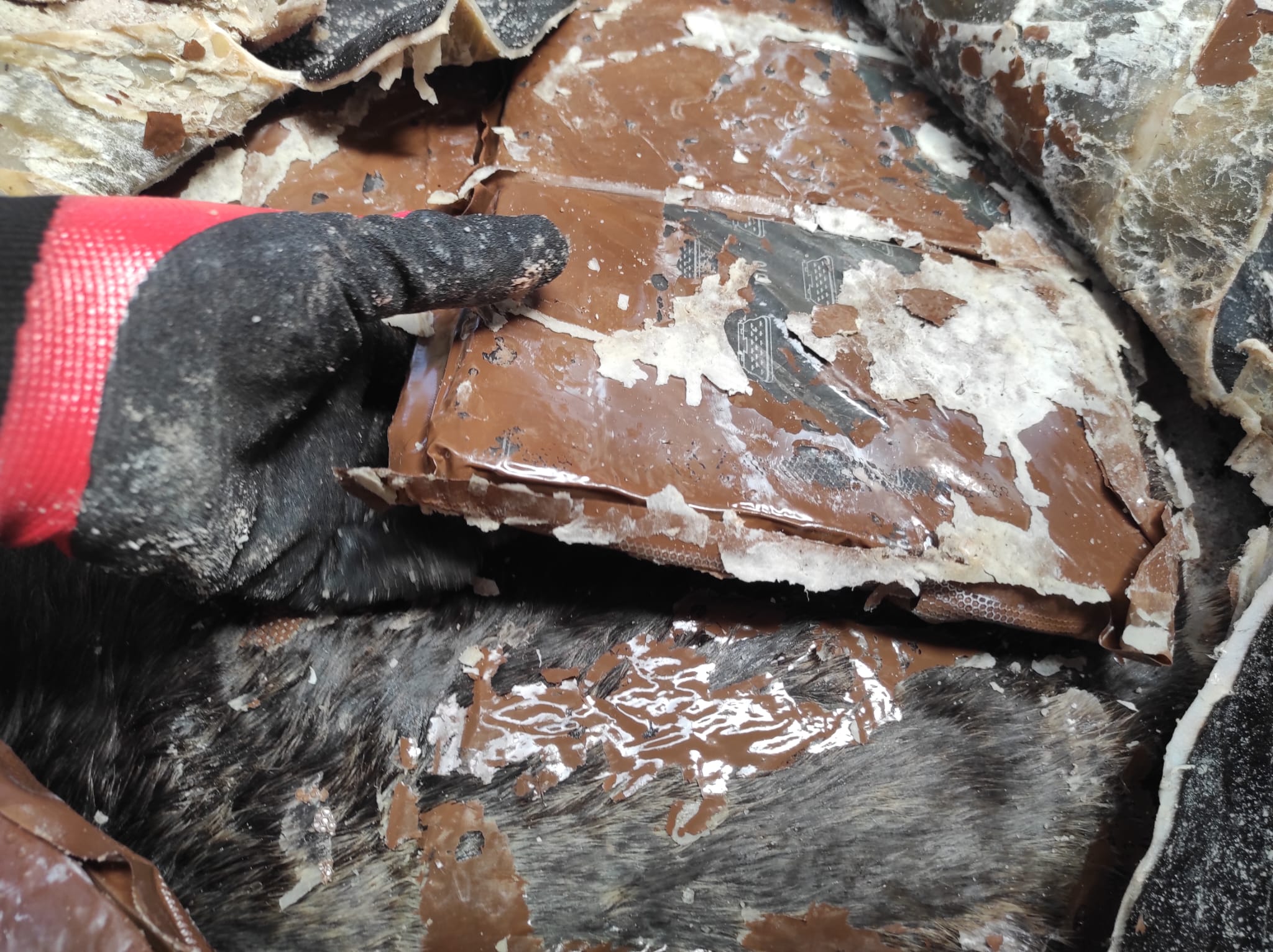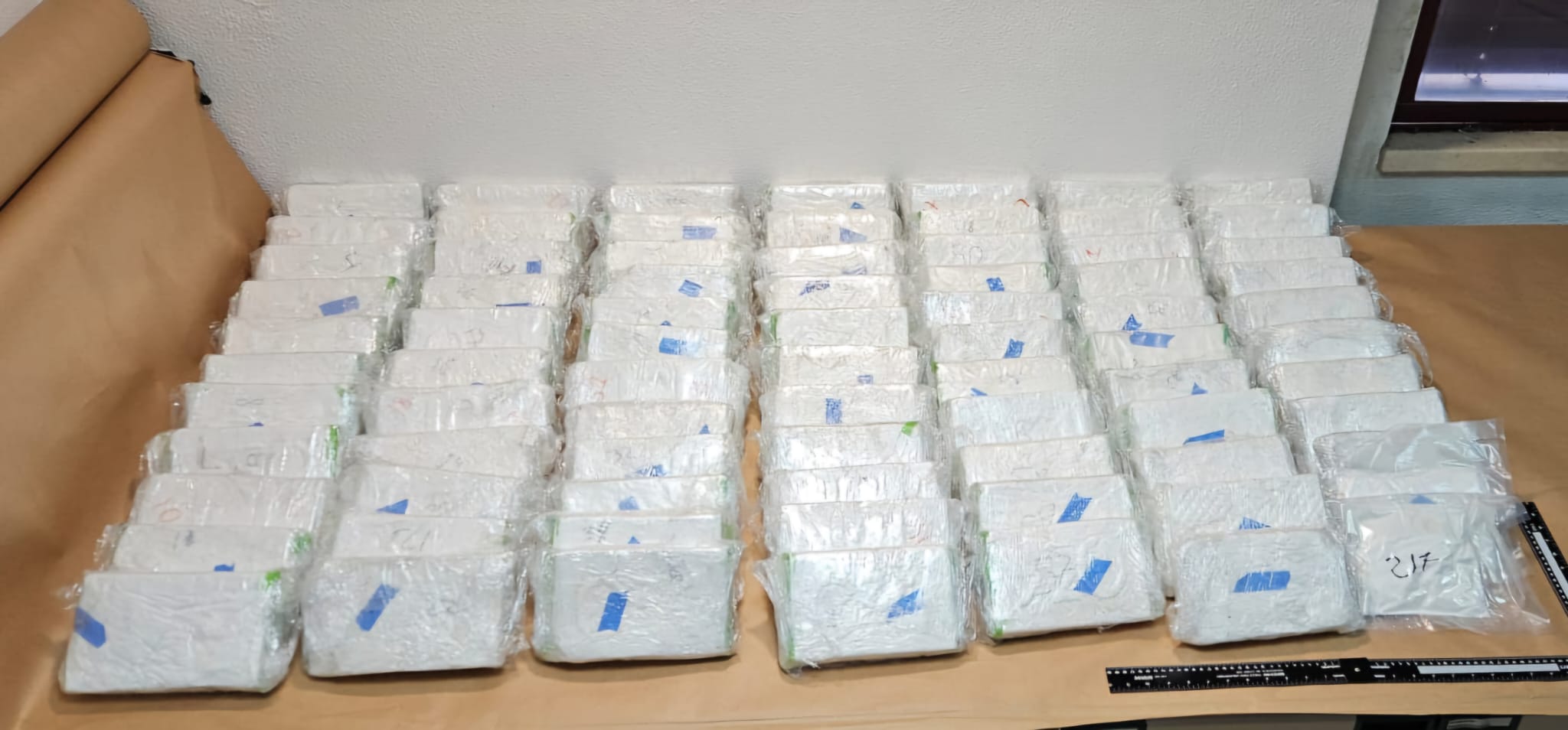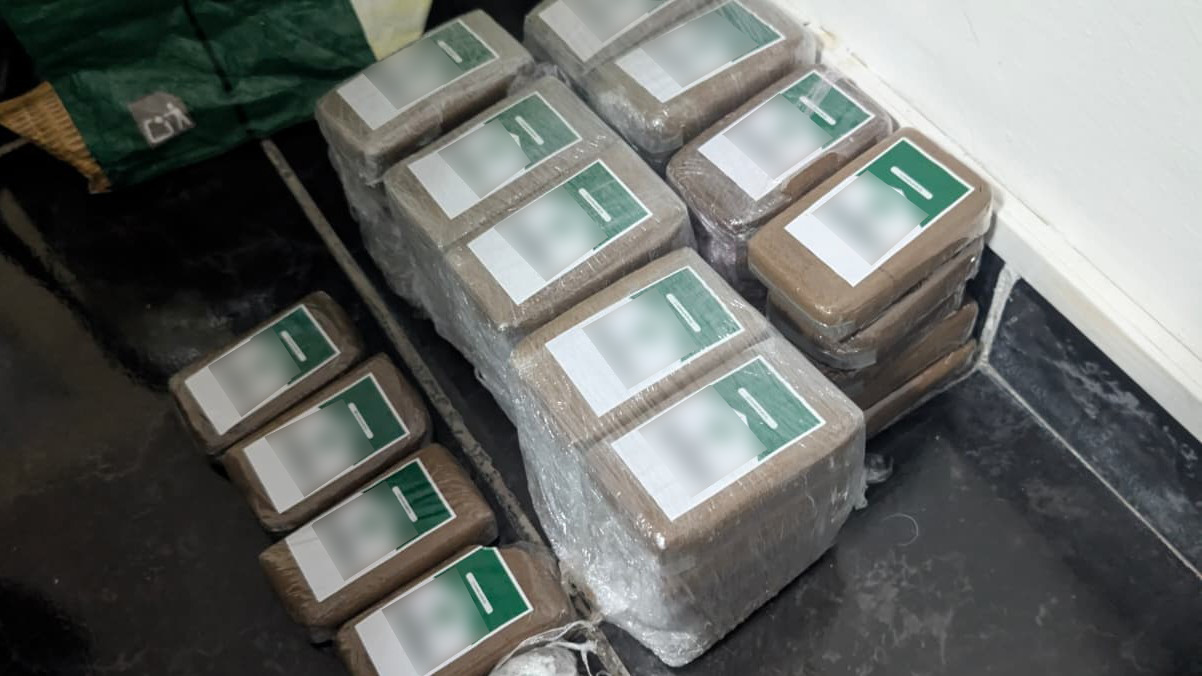New routes and concealment methods identified in cocaine crackdowns in Spain
Europol supported Portuguese and Spanish authorities in two major investigations against cocaine trafficking involving law enforcement on both sides of the Atlantic. These operations exemplified a shifting landscape of global trafficking routes and innovative concealment methods.
Cocaine production in Latin America has reached unprecedented levels while wholesale prices in Europe have dropped and are currently at the lowest level ever. Although joint law enforcement investigations and efforts to strengthen port security across European seaports have led to positive results in recent years, criminal networks have quickly adapted by exploiting new methods of trafficking. Their activities have become increasingly global, interconnected and fluid, posing a major challenge for law enforcement authorities.
Cocaine shipments entering the EU are now concealed in highly sophisticated ways, including chemical modifications or incorporation into carrier materials, making detection at ports extremely difficult. In the Iberian Peninsula, for example, traffickers often tranship cocaine on the high seas, using go-fast boats or other vessels to bypass port controls.
The two distinct investigations conducted between November 2024 and September 2025 led to the disruption of two wholesale cocaine trafficking networks linked to the smuggling of tonnes of cocaine into the EU.
Found in Spain and Portugal: cocaine hidden inside cowhides
A first action day led by Portuguese Judiciary Police and Spanish Guardia Civil, with the support of US DEA and Dominican Republic authorities, illustrates how criminal networks are using more elaborate tactics in carrying out their illegal activities. On 3 September 2025, the Europol-supported operation resulted in the arrest of 12 suspects for allegedly smuggling cocaine inside cowhides.


This unusual method enabled the perpetrators to prevent the drugs from being detected by both port scanners and drug-detecting dogs. The only way to locate the cocaine was by completely dismantling the shipment. Investigators believe that the suspects had sent dozens of containers of cocaine from the Dominican Republic to various locations in Europe by using this concealment method.
The action day on 3 September was the second phase of the operation. The first one took place between June and July 2025 and led to the arrest of seven suspects nationals from Colombia, Dominican Republic, Portugal and Spain.
Overall, the operation led to:
- 19 arrests
- 32 property searches
- 2,232 kg of cocaine seized
- EUR 150,000 in cash seized
- Seizure of several electronic devices, luxury vehicles, and documentation
Second hit against cocaine trafficking
A few days after, on 10 September 2025, Europol supported SVA-Spanish Customs and Guardia Civil in another operation that led to the dismantling of a criminal network smuggling cocaine from South America to Europe using multiple types of vessels. The suspects, Colombian, Cuban, Romanian and Spanish nationals, were involved in extortion, kidnapping and extreme violence due to its rivalry with other criminal organisations. US DEA and Judiciary Police from Cape Verde also participated in the investigation.


Results from the action day on 10 September 2025:
- 37 arrests (including a HVT)
- 39 property searches
- Cocaine cutting laboratory dismantled
- EUR 600,000 in cash seized
- 200 bank accounts frozen
- 26 vehicles, 56 real estate and 5 vessels seized
- Seizure of 3 firearms (1 shotgun and 2 pistols)
- Fake weapons and knives found in the house of the target responsible for the kidnappings and extortion
The gang was led by a high value target, who was also arrested during the action day. This Spanish citizen offered his criminal services and logistical infrastructure to other criminal organisations in South America and Europe to traffic cocaine. He also established a network of companies related to fishing activities to launder profits and give the criminal activities the appearance of legality.
In November 2024, the first iteration of the operation resulted in the arrest of six suspects who were aboard a fishing vessel, bound for Spain and seized over 1.5 tonnes of cocaine. All in all, authorities have seized over 2 200 kilos of cocaine.
A combined strategy to disrupt large-scale cocaine trafficking
Drug trafficking remains a key threat to the EU’s internal security. To address this challenge, Europol played a central role in ensuring the success of these two major investigations by coordinating agencies, fostering cross-border police cooperation, providing analytical and financial support, and deploying experts on the ground during action days.
Europe has emerged as the primary market for cocaine, with production at record levels and prices falling. While intercepting drug shipments is crucial, it is no longer sufficient on its own.




